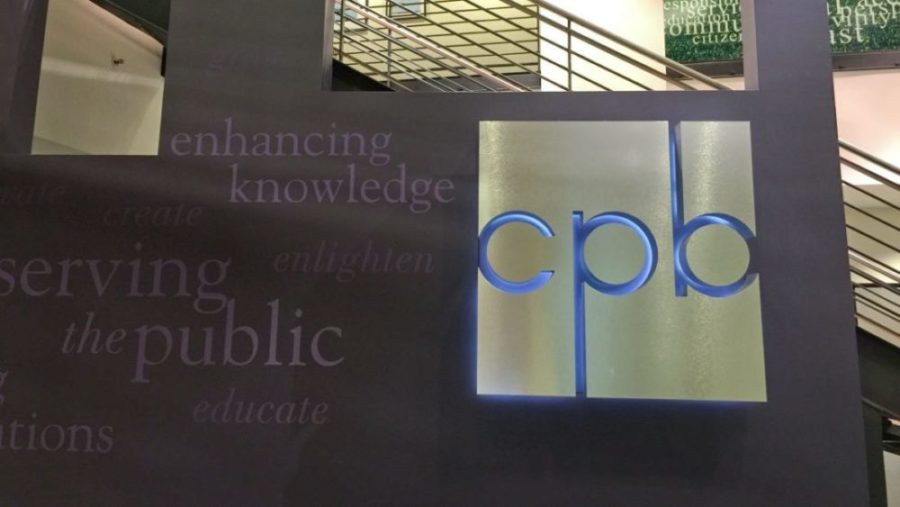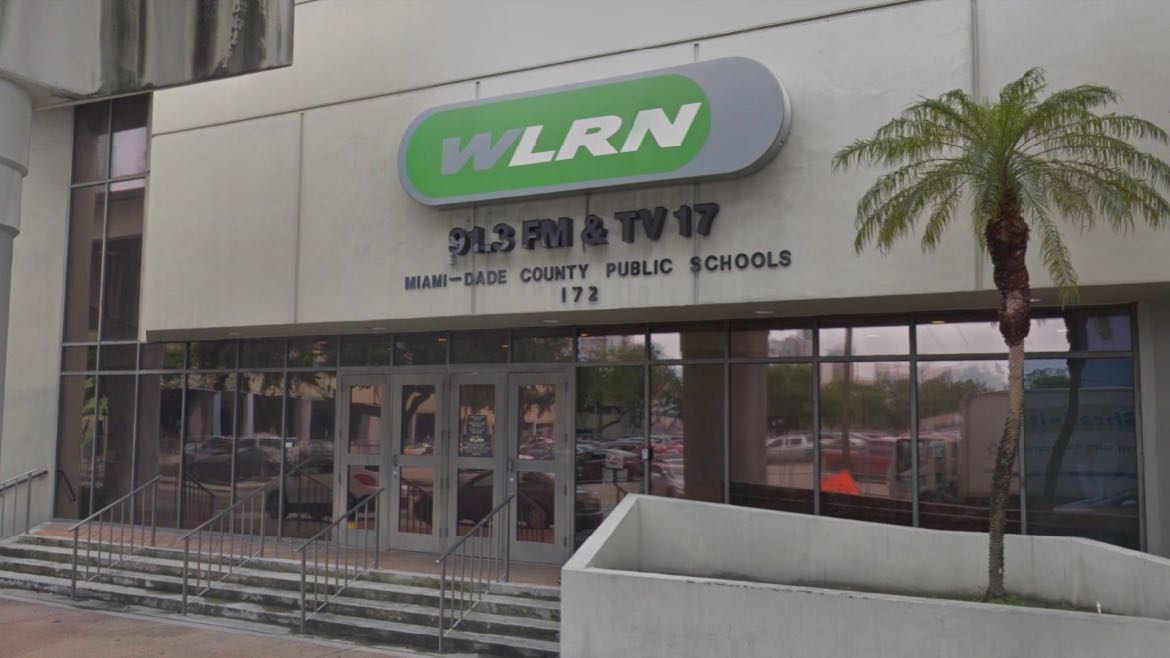Experts say Trump’s CPB order ‘should have no legal effect’

Dru Sefton / Current
Legal experts say that President Trump exceeded his authority with his executive order last week that directed CPB to end funding to PBS and NPR.
Trump has “no authority under the Constitution to take over the board’s functions and basically do them himself,” said Peter M. Shane, a professor at the New York University School of Law.
The executive order, signed Thursday, “instructs” CPB’s board and all executive departments and agencies “to cease Federal funding for NPR and PBS.”
In a statement Friday, CPB President Pat Harrison said CPB is outside the president’s purview.
“Congress directly authorized and funded CPB to be a private nonprofit corporation wholly independent of the federal government,” Harrison said. The Public Broadcasting Act forbade “any department, agency, officer, or employee of the United States to exercise any direction, supervision, or control over educational television or radio broadcasting, or over [CPB] or any of its grantees or contractors,” she said.
“I think it should have no legal effect,” said James B. Speta, a professor at the Northwestern University Pritzker School of Law. “Whether it will have a practical effect or a political effect, I suppose, is a different question. But I don’t view the executive order as something that the president had the legal authority to do.”
“I don’t think that the president has any statutory authority to impound the money, rescind the grants, stop the funding, however you would like to put that — no statutory authority at all,” Speta said.
The next step “will be whether money actually gets cut off somehow,” he said. In some cases, grant-funded researchers and universities have found that “money that people expected to be there just wasn’t there in government accounts anymore.”
If a lawsuit ensues, Speta expects the president to assert that the statutes are unconstitutional “to the extent that the statutes put the Corporation for Public Broadcasting beyond his control.”
“Those sorts of constitutional arguments have not so far been accepted by the courts,” Speta said. “Whether they would be accepted, I don’t know.”
‘It’s not a legal order’
Ellen P. Goodman, a professor at Rutgers Law School, called the executive order “lawless.”
She pointed out that there is a “perennial threat” to ending funding for public broadcasting but that it plays out in Congress, which is “what the law requires.” The Public Broadcasting Act is an act of Congress that “sets up a funding mechanism that funding will go through CPB,” she said.
CPB is “constrained” by the Public Broadcasting Act, she said. “CPB doesn’t just get this money and they can do whatever they want with it,” she said. “So it’s not like they could just say ‘We’re no longer going to give to the stations, we’ve decided.’”
Whether or not the executive order has any effect “depends on two things,” Goodman said. “One is, will CPB — which I don’t think is obligated to do this — will they do it anyway? … I don’t think it would be in accordance with their statute. And two is, will Congress do it legally?”
One option CPB has for responding is to do “nothing,” she said.
“This is an order,” Goodman said. “It’s not a legal order. They don’t need to comply with it. … What would happen then? I don’t know.” The question then becomes: What will Trump do to try to force CPB to follow the order?
“There are always points of leverage that kind of make institutions yield,” she said. “I don’t know exactly what they’d be here. But the appropriation is controlled by Congress. CPB is a creature of Congress. So, it’s not really clear to me what the executive can do, but … we’re always surprised to find that there are ways.”
“If they have not gone to court yet, I would,” Shane said of CPB. “Seek an injunction against implementation of the order.”
The executive order is part of a pattern during Trump’s second term to use executive orders “to force institutions that are beyond his direct control to comply with his ideological agenda in a variety of ways,” Shane said.
It’s “certainly unprecedented in peacetime to have orders that attempt to do this,” he said. “Unprecedented on an individual basis. But in terms of the sheer volume, definitely unprecedented and quite problematic, legally and constitutionally.”
‘Bald example of political meddling’
Presidents have previously threatened to end funding for public broadcasting, including Richard Nixon, who vetoed funding in 1972 before eventually approving support at a lower level. But none has gone as far as trying to end funding through an executive order, said Allison Perlman, a professor at the University of California Irvine who has written about the history of public broadcasting.
“The goal of creating the Corporation for Public Broadcasting in the first place was to provide a political heat shield to public media,” she said. “Its goal was for this not to happen” and to see that public media “doesn’t turn into an instrument of political propaganda from whatever political party’s in power,” Perlman said.
Prior to the passage of the Public Broadcasting Act, “the notion that Congress would appropriate money for public media at the time was considered a really iffy, bad proposition, because no one wanted public media to be a political football,” Perlman said.
“There was a lot of anxiety about not having political meddling in the sector,” she said. “And so [it’s] hard to imagine a more bald example of political meddling in the sector than this executive order.”






The law in question is NOT Constitutional! The President is responsible under the constitution to operate the executive branch. The legislative branch cannot make anything outside of the chief executives purview.
No, it’s talk about the reasons why the funds are being withheld. NPR and all other agencies of its type are responsible for being impartial. They have the public airwaves and have used them to push a leftist agenda that admits it doesn’t even publish truth anymore.
So since it is an agency operating outside of its own founding document, and the autonomy given to it is unconstitutional in the first place, the president and any president going forward should have the authority to withhold their funding. All federal funding is contingent upon certain guidelines and NPR has violated them all.
What violations do you evidence of? None. Go away with your authoritarian agenda.
Frank, CPB, NPR and PBS are not agencies, fortunately.
Here’s what happens when public media is an agency: https://apnews.com/article/poland-state-media-propaganda-government-a6efc0be6b874a0ae4b1bf99ea7f7f2c